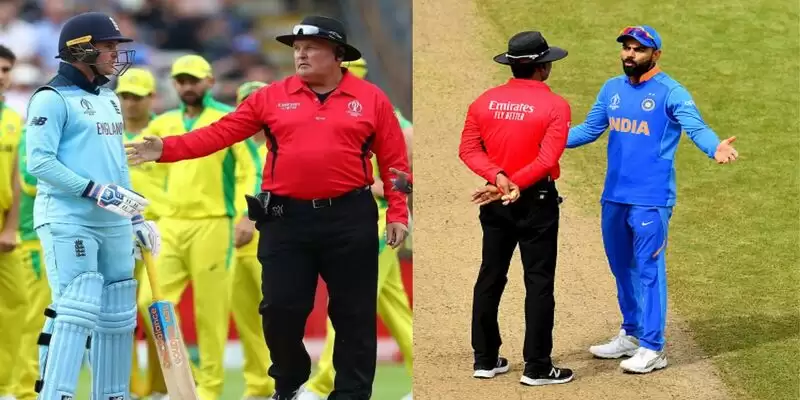ICC announces major changes in playing conditions; Runing out non-striker and Saliva ban among the top

On Tuesday, the International Cricket Council officially confirmed a number of changes to the playing rules that will take effect on October 1. The complete ban on using saliva to polish cricket balls and the changing of a bowler's act of trying to run out a non-striker under lawful dismissals from foul play are two of the most important changes.
The changes proposed by the ICC Cricket Committee, which was headed by former India skipper and current BCCI president Sourav Ganguly, were approved by the Chief Executives' Committee (CEC).
After the ICC Men's Cricket World Cup Super League, which concludes in 2023, the in-game penalty that was first implemented in T20Is in January 2022 (wherein the failure of a bowling side to bowl their overs by the scheduled time will result in an extra fielder having to be brought within the 30-yard circle for the remaining overs of the innings) will also be used in ODI matches.
Check out the changes made:
Batters return when caught: If the catch is taken so the new batter will come to the end where the striker was, batters crossing before the catch will not be applicable.
Use of saliva to polish the ball: This ban has been in place in international cricket since over two years as a COVID-related temporary measure, and it is considered acceptable for the restriction to be made official.
Incoming batter ready to face the ball: In Tests and ODIs, an incoming batsman must now be ready for a strike inside of two minutes, while the T20 International time limit of 90 seconds remains in effect.
Striker’s right to play the ball: This is limited to making it necessary for a non-striker or a part of his bat to stay within the playing crease. If they go past that, the umpire will signal and call "Dead Ball. Any ball that forces the batter off the field is also referred to as a "no ball."
Unfair movement by the fielding side: Any inappropriate or intentional movement while the bowler is running in to bowl may now result in the umpire granting the batting side five penalty runs in addition to a call of Dead ball.
Running out of the non-striker: The Playing Conditions move this method of causing a Run out of the "Unfair Play" category to the "Run out" category in accordance with the Laws.
Bowler throwing towards striker’s end before delivery: Before, a bowler could throw the ball to try to run out the striker if they saw the batter moving toward the wicket as they started their delivery stride. This activity will become known as a Dead ball.
Furthermore, the playing conditions for all Men's and Women's ODI and T20I games will be changed to permit the use of hybrid pitches, if both sides agree. Only women's T20I games can currently use hybrid pitches.
The BCCI President said that he was thankful to all the members as he chaired his first meeting of the ICC Cricket Committee. He said, "I was pleased with the productive contributions of the Committee members which resulted in key recommendations being made. I thank all members for their valuable input and suggestions."
ICC Cricket Committee: Sourav Ganguly (Chair); Ramiz Raja (Observer); Mahela Jayawardena and Roger Harper (Past Players); VVS Laxman and Daniel Vettori (Representatives of Current Players); Jay Shah (Full Members’ Representative); Gary Stead (Member Team Coach Representative); Joel Wilson (Umpires’ Representative); Jamie Cox (MCC Representative); Kyle Coetzer (Associate Representative); Ranjan Madugalle (ICC Chief Referee); Shaun Pollock (Media Representative); Greg Barclay and Geoff Allardice (Ex Officio - ICC Chair and Chief Executive); David Kendix (Statistician); Clive Hitchcock (Committee Secretary).
